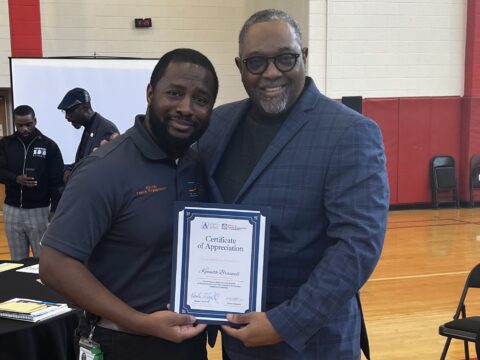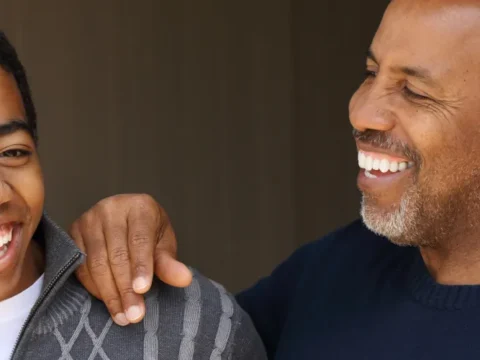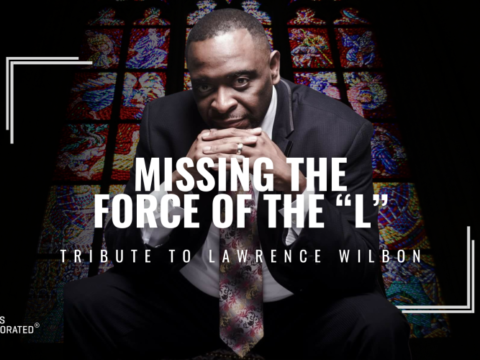By Kenneth Braswell, CEO, Fathers Incorporated
“If Jesus had a child in Georgia,” a father said through a steady voice that betrayed a breaking heart, “God wouldn’t be allowed to be his legal father.”
You could feel the room swallow that line. Howard — an educator, mentor, and the kind of dad who spends his days pouring into other people’s children — had just given the most honest summary I’ve ever heard of what our state’s legitimation law does to families. It strips fathers of standing, and it strips children of certainty. It turns love into paperwork and presence into procedure.
At the third and final hearing of the House Study Committee on the Affordability and Accessibility of the Legitimation Process, held in Augusta, lawmakers heard what many have been living for years. Georgia’s two-step system (paternity plus separate legitimation) doesn’t simply slow families down — it breaks them down. It burdens mothers, sidelines fathers, and teaches children that their family’s worth is conditional.
This last hearing focused on two ideas we must keep front and center: accountability and sustainability. What do we measure? Whose experiences count? How can we develop a process that benefits every Georgia county, not just those with a visionary judge or a volunteer clinic? And how do we ensure that the solution we choose is durable and fair for the long haul?
From our vantage point at Fathers Incorporated, the answer begins with what we hear over and over from dads: This law is wreaking havoc on lives. One father describes waiting nine months for a hearing. Another explains how 26 days a year is not parenting — it’s visiting. A grandmother tells the committee that her relationship with her grandchildren evaporated when her son passed away because in the eyes of the law, the paternal side of the family didn’t matter. An attorney walked legislators through a three-year case that cost more than $7,000 before a father’s rights were recognized — even though his petition was uncontested.
These aren’t “edge cases.” They’re the natural outcomes of a system that asks families to navigate a maze while they are already exhausted, grieving, or struggling to keep the peace.
As CEO of Fathers Incorporated, I’ve said it before, and I’ll say it again: This is not just a policy issue; it’s a human issue. The difference between paternity and legitimation may look tidy on paper, but in practice, it’s a fracture line that runs through homes, schools, pediatric wards, DFCS case files, and family court calendars. It turns the dad who shows up at a school or hospital into a legal stranger. It tells a father who pays child support that he must still “apply” to be recognized as a parent. It tells a mother already carrying the load that she must carry courtroom proceedings, too.
Fathers Incorporated’s role throughout this series of legitimation hearings has been two-fold: to bring forward the fathers’ lived experience and to offer workable solutions. Our Gentle Warriors Academy has supported over 900 fathers since 2021, and our navigation team has helped more than 230 men complete legitimation. Our staff sees the same patterns that legislators heard at the microphone: confusion about what a birth certificate does (and does not) do; fear that filing will ignite conflict; cost barriers; and county-by-county differences. Then there’s the loneliest truth of all: Many fathers don’t even know where to begin.
As our legitimation specialist, Michelle Lockhart, told the committee, “These dads are simply afraid to go through the process: the costs, the service by sheriff, the wait time, the different rules from one county to the next. By the time they arrive at court, they are discouraged and depleted.” She added something we repeat in every workshop and clinic: “When we help a dad turn a stack of forms into a court order, we’re not pushing paper. We’re unlocking a relationship.”
That’s the work. But it’s also the lesson.
Georgia is the only state that still requires fathers to take this extra step after paternity. The question before the committee now isn’t whether legitimation is broken or not. It’s how to replace it with something better. We believe the path forward must include clear accountability and sustainable implementation, not just a new statute or a best-practice memo.
Here is what accountability looks like:
- A statewide data backbone. Over the last 25 years, we know from vital statistics that more than 1.2 million Georgia children were born outside of marriage. Under current law, each one entered the world with no legal father. That is not a guilt statement. It’s a legal fact. Yet we cannot answer basic accountability questions: How many of those children have been legitimized? How long do uncontested cases take by county? How many petitions are denied and on what grounds? How many cases are derailed by service, fees, or temporary protective orders? We must track, publish, and utilize it to inform policy.
- Uniform standards and timelines. A father’s chances shouldn’t depend on which clerk answers the phone or which judge is on the bench. We need standardized forms, e-filing, clear service options, triage for uncontested cases, and time limits for hearings.
- Separation of questions. We should separate the factual question — “Who is the parent?” — from the evaluative question — “What custody or parenting-time arrangement serves the child’s best interests?” One can be resolved quickly (with uncontested acknowledgments or genetic testing); the other requires careful judicial review when parents disagree. Conflating them is what causes costly delays that punish everyone, especially the child.
- Emergency pathways. When there is a mental-health crisis, neglect, or risk to a child’s safety, an involved parent must have standing to act fast. There must be a clear emergency lane for responsible dads who are not yet “legal” on paper, but who are the only stable adult in reach.
- Navigation and affordability. The system should not rely on charity or luck. Legal navigation clinics, fee relief where appropriate, and standardized use of senior-judge dockets for pro se parents would transform outcomes without compromising safeguards.
Sustainability means two things: first, durability (a solution that works across all 159 counties, not just where a heroic judge builds a local “station” or clinic) and second, capacity (partners on the ground who can help implement, adjust, and measure the reform as it scales).
That is where Fathers Incorporated stands ready to serve. We can help build the connective tissue a statewide solution requires: clinics and workshops, court readiness and mediation supports, checklists and video explainers, and the daily hand-holding that turns confusion into completion. We are already doing it in Atlanta, in Columbus, and soon in communities throughout the state. We can also assist the General Assembly and state agencies in designing a data system to track filings, time-to-order, outcomes by county, and identify barriers that need to be eliminated over time.
When I think back on that final hearing in Augusta, I hear three voices in chorus. I hear Howard, the mentor who reminded us that, theology aside, no child’s bond with a loving parent should be held hostage by process. I hear Michelle, who reminds us that families need a guide, not a maze. And I hear the voices of lawmakers. Vice Chair Teddy Reese said it plainly: “Fathers need a win.” Chair Carter Barrett called for “meaningful improvements.” I take both as commitments to move from listening to building.
We are optimistic. And more than that, we are determined. The work ahead is to move beyond a 20th-century logic that began in inheritance law and build a 21st-century system that starts with children. A system that is fair to both parents and, most importantly, to the child. A system where, when both parents want to parent, the law says “yes” quickly, safely, and consistently. And, when parents disagree, a system that resolves it without teaching a child that one parent is a visitor.
If Georgia leads, others will follow. And when our children look back on this moment, I hope they see not a fight over forms, but a decision to put family — not paper — at the center of fatherhood.
This blog post covers the September 17, 2025, Legitimation Study Committee hearing in Augusta, Georgia. Visit earlier posts to learn about hearings in Atlanta and Columbus.
















